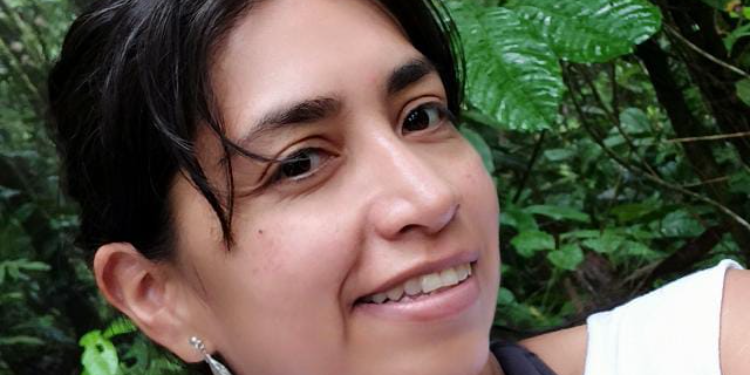
Citlalli has been living and working as a biodiversity scientist in Ecuador since October 2015. After completing her master’s and PhD studies in the UK, Citlalli moved to Ecuador to work on a conservation project she had developed during her PhD research at the University of Sussex.
Today, the Tesoro Escondido Reserve, together with the Jocotoco Foundation, protects over 2000 hectares of primary forest in the Chocó lowlands, a global biodiversity hotspot, threatened by anthropogenic activities such as timber extraction, monocrops, and mining concessions. “I am the director of the Tesoro Escondido Reserve, in charge of the scientific research, as well as collaborations with universities and other NGOs. Among others, I train local people as research assistants (parabiologists) and environmental educators. I design the environmental education and community outreach programmes, I report to donors and fundraise,” Citlalli explains.
Citlallis' days vary a lot. She has meetings with the staff to organise the fieldwork, checks the collected data, and looks at the different projects such as the amphibian's monitoring, propagation of critically endangered trees, and monitoring of the critically endangered brown-headed spider monkey primate. “Lately, I have allowed myself time also to enjoy and not work all the time. I have started rock and mountain climbing — Ecuador is a great place for this. I also love to read, dance, do yoga, meditate, write, and go out with friends.”
I ask Citlalli to tell me about the under-representation of women scientists, and how we can give women scientists a louder voice. “Even though the number of women studying biology and conservation is high, men are more than women when it comes to positions of power in these disciplines. It is slowly changing, with more and more women getting organised to speak up and demand these spaces. In general, in Latin America, we have to face stereotypes of what a woman should or shouldn't do. Many times the job of a scientist falls under risky activities, or activities that take too much time, require travelling, long hours away from home, etc.
“We can change oversimplified images of women by being good role models to the girls that will follow us. Educating our children, and particularly girls, in that they can achieve anything they want regardless of their gender, and that science is not too far away from them. Educating girls that being a woman does not mean you are weaker or can't do certain jobs — but also educating young men in supporting the dreams and activities of their sisters, friends, partners, mothers. Gender inequality has to change from the core, in the schools' curricula, the states' priorities, and, of course, at home. We can give women scientists a louder voice by creating spaces to speak about their jobs and activities, share their dreams, and tell their stories so that they become a visible part of the society at schools, universities, the media, etc.”
When Citlalli became the director, many people in the rural context found it strange to follow her indications or decisions. “The second in command is also a woman, so for both of us, it was hard at the beginning. People would always look for the man in charge. But now, I should say that things have improved and I have been very fortunate to reach the position I have and be respected by my colleagues. Of course, I am well aware that it is not like that for everyone.”
Citlalli is from Mexico, and due to the pandemic, she doesn't know when she will visit home next. Even though she is grateful for the fantastic support network of friends and colleagues she has created in Ecuador, she misses the feeling of being in a place that “watched me grow,” she says.
We close the interview with a message from Citlalli for International Women's Day: “I work with a lot of rural women, and my projects try to empower them every day. There are setbacks, of course, but on this day, we should look back at our many achievements over the last five years. For the world, this day is a chance to stop and think about what else we can do to have equality and freedom in all aspects of women's lives.”



















